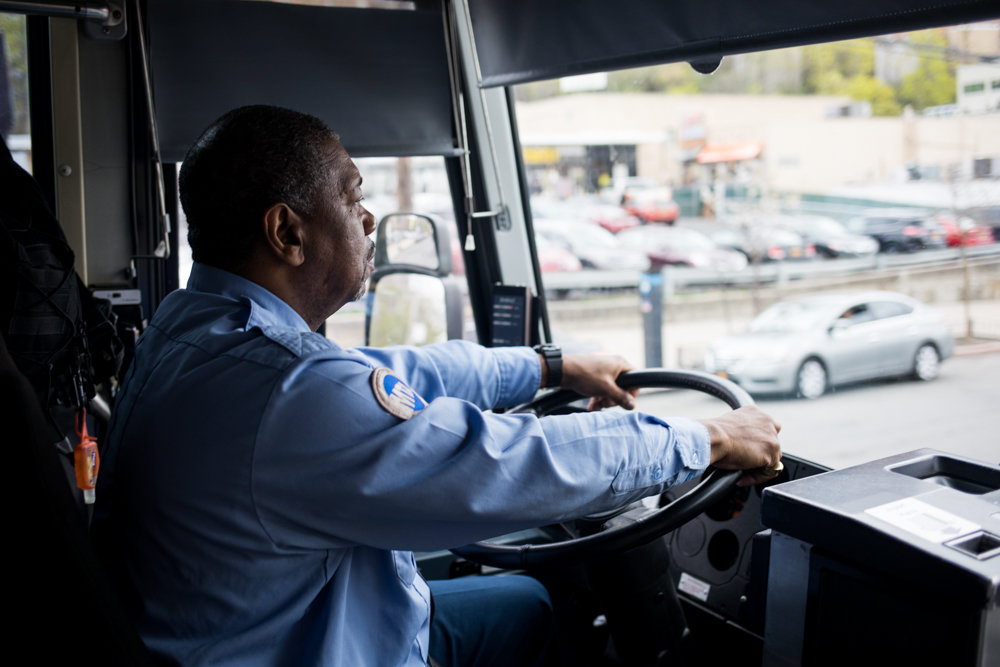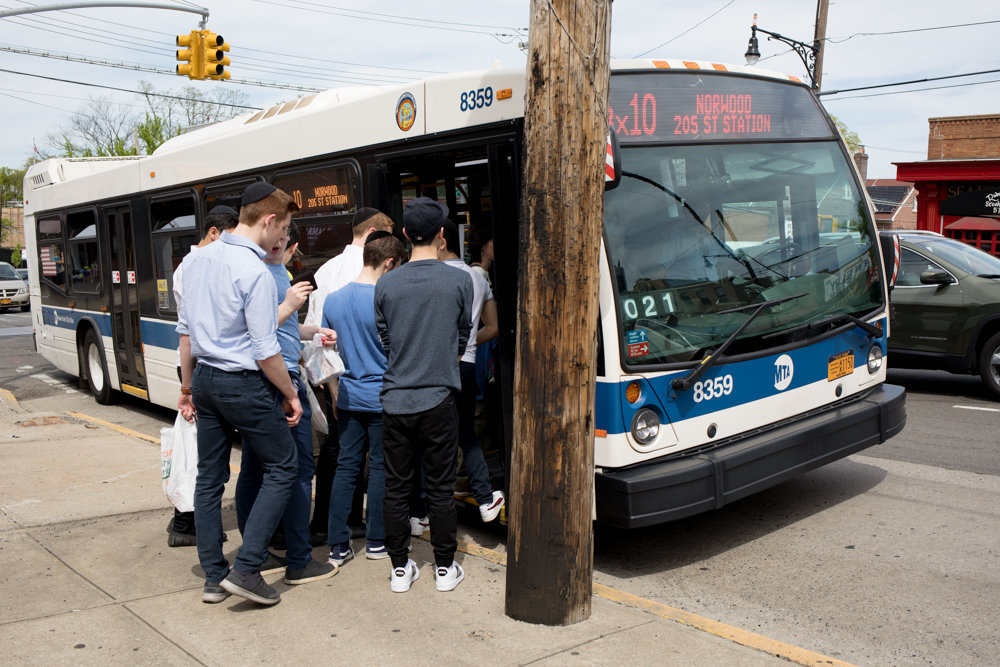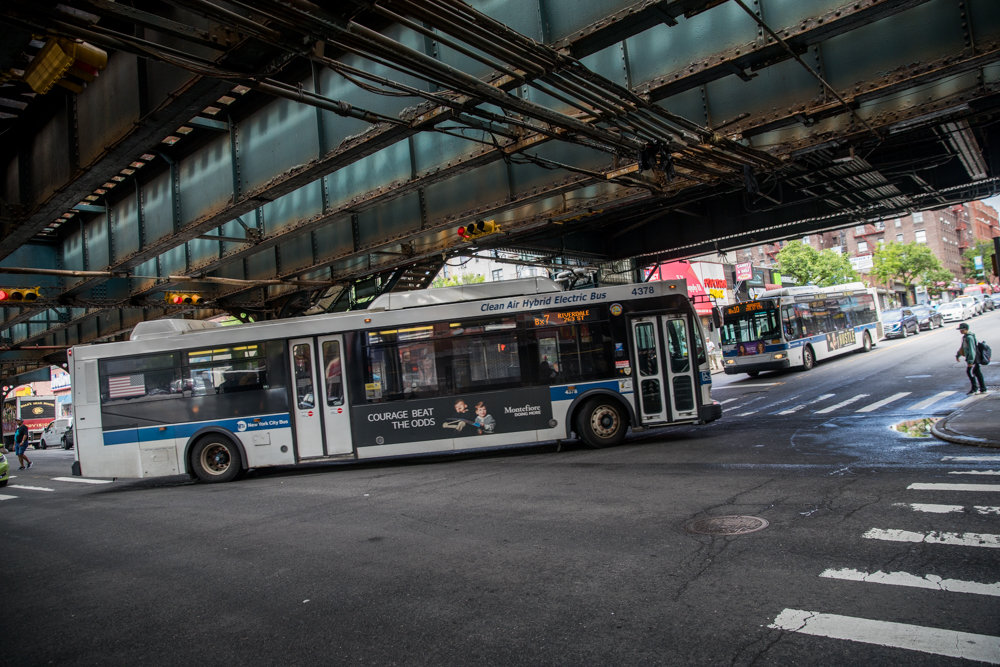Bronx buses could soon make fewer stops
The Metropolitan Transportation Authority has finally released its plans to overhaul its bus routes in the Bronx. But when it comes to service in this neck of the borough, not a lot is expected to change — except some stops are slated to go.
While there are plans to reroute several buses in the borough, lines servicing Riverdale, Kingsbridge and Marble Hill — Bx7, Bx9, Bx10 and Bx20 — will not be rerouted. However, the MTA hopes to keep buses moving faster through high-traffic zones by eliminating stops.
Plans for the area’s express lines — BxM1, BxM2 and BxM18 — include eliminating some stops, improving connections and making routes more direct.
The draft plan is a major overhaul to a bus system the MTA says is the slowest in the nation. Nearly 60 percent of Bronx residents ride city buses and another 16 percent travel solely by bus. Yet ridership has declined rapidly since 2016 due to a variety of reasons, including slow bus speeds and unreliable service.
The MTA studied the problems plaguing Bronx bus lines and solicited the opinion of bus riders about areas they felt service could be better. The resulting redesign identified problems with bus frequency, traffic flow and stop frequency that the MTA plans to address through a series of service changes.
Because bus stops in the Bronx are closer together than in any other major city, MTA officials believe spacing them out more can speed up bus service and prevent bus-bunching, where more than one bus finds itself at the same stop. By eliminating some stops in low-traffic areas, buses can keep riders moving.
Current routes take riders along heavily congested streets. Route changes will avoid slow-moving and standstill traffic during peak travel times, officials said. Reducing the number of turns, stops and slow-downs allows travelers to reach their destinations faster.
Among the routes serving the Community Board 8 area, Bx7 is in for the largest number of changes. More than a dozen of the route’s 86 stops would be eliminated, primarily on Broadway between West 185th Street and West 213th Street on the Manhattan side of the route. It would reduce stops by 15 percent.
Stop removals for the remaining buses are bit less dramatic. The Bx9, Bx10 and Bx20 are expected to lose two to three stops each. Removing one stop adds an estimated one to two minutes for commuters who have to walk to stops that are further away, MTA officials said.
For the express lines — the bus routes to and from Manhattan — the plan calls for the loss of some stops, but the additions of others. BxM1 would lose the northbound Third Avenue/East 64th Street stop, but could add a southbound stop at Fifth Avenue at 96th Street.
For the BxM2, the redesign would add one stop on Broadway at West 72nd Street in Manhattan, but the biggest change would be a reroute to avoid traffic jams on the Major Deegan Expressway. Buses would travel via Inwood to the Henry Hudson Parkway and Riverside Drive to service West Midtown.
That would allow the BxM2 to avoid the heavily congested east side Manhattan streets along Central Park, allowing riders heading to stops south of West 72nd Street a shorter trip via Riverside to the West 79th Street exit. Rerouting, though more efficient, requires coordination with the city’s transportation department before it goes into effect, according to the redesign proposal.
Similarly, the BxM18 also will move away from the Major Deegan. The new line would take riders downtown by Hudson Yards via the Hudson Parkway and Riverside Drive. The change would reduce the bus times spent on congested Manhattan streets.
Stops in eastern Midtown would be eliminated, but 16 new stops would be added from Chambers Street to the South Ferry Terminal in the Financial District.
The plan released last week is a draft and the MTA still seeks public input on the proposed changes. MTA personnel will hold a series of community meetings throughout the month, including one at Fort Independence Community Center, 3350 Bailey Ave., on Tuesday, June 11, beginning at 6 p.m.











